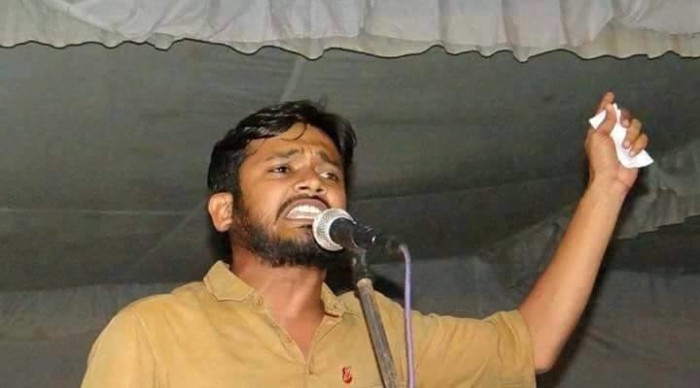“Now, I am become Death, the destroyer of worlds.” – Robert Oppenheimer
Mankind’s tireless quest to exert itself on its immediate and distant environment has seen no manifestation as polarizing as nuclear power. Quite a riveting narrative starring the poster boy of female physics Madam Curie and her semi centennial contemporary Mr. Oppenheimer, the history of nuclear physics is one that tends to mire itself in broad abstractions like ‘sustainability’, ‘national security’ and ‘pioneering women’. However, there is no abstraction as definite as death, which becomes less of an inevitability and more of a volition with the very existence of nuclear weapons.
It would be naïve to dismiss the sensational scientific relevance of nuclear physics. Both nuclear fission and fusion are testament to much larger jurisdiction humankind assumes over the natural world, priding itself on assimilating what was only a century prior considered the smallest, most indivisible unit, the atom. It is an outstanding achievement for the scientific world, and humankind as a whole, for nuclear energy is perhaps the only source of energy that will extend our civil existence beyond this century. Ironically, it is nuclear energy that can also limit our civil existence beyond a few minutes. The intent of this article is to analyze the role of the United Nations and its subsidiaries in overseeing fluid foreign policies wholly based on the relentless quest to amass nuclear weapons, while dispelling any propositionary argument for the existence of the same.
Nuclear Family
The United Nations, once the answer to a plethora of the world’s problems, has managed to reduce itself to a spineless organization whose work flirts with mere formality. Although the work that several of the UN’s subsidiaries, including UNICEF, the FAO and the WHO is highly laudable and must be acknowledged, the essence of the UN was to prevent the estrangement of states so as to give impetus to another massive armed conflict. It is safe to say that for the most part, the UN and its five principal organs – the SC, GA, ECOSOC, ICJ and the Trusteeship Council – have failed in their primary objective that is to prevent the outbreak of wars. The advent of the UNPKF has helped contain certain conflicts, but has never pre-emptively prevented a war.

When assessing the UNs work toward nuclear disarmament, there exists no immediate answer. As tends to be the case with the UN, on paper, there exist flawless mechanisms that uphold and respect sovereignty of all states. However, these mechanisms end at that – they sempiteranlly remain as words on a piece of paper. The UNs stalwart document on Nuclear Disarmament – the Nuclear Non- Proliferation Treaty (the NPT) – came into force twenty five years after the formation of the UN – meaning that for vast, tension-laden sections of the Cold War, the world lacked any definite treaty on Nuclear Weapons. However, when the Treaty did come into effect, it nonchalantly gave a handful of states – coincidentally the P5 of the SC – the status of being ‘Nuclear Weapon States’, allowing them to legally retain their nuclear weapons with no political or legal reprehensions. Social reprehensions did come up, specifically during the ‘Hippie’ movement, where large chunks of the population demonstrated against the USA’s possession of nuclear weapon states. These movements were too few and far between, making no real impact on global dynamics. That meant that for the 136 countries that had signed the NPT in the 1960s, they were ‘not allowed’ to develop nuclear weapons. It was ‘illegal’. A specific and highly potent criticism of the NPT is that there lacked an enforcement mechanism and had a basic exit-clause that listed no formal consequences. This led to a trio of countries exploiting this legal non-compulsion and exercise their sovereign right not to accede to the treaty. These countries, India, Pakistan and Israel, continue to remain hotbeds of bilateral or multilateral instability.
Out of the five nuclear weapon states, it is certain either the Great Satan or their Russian counterparts are the most likely to push the button. France and the United Kingdom have participated in disarmament practices, more so for the former, but continue to retain a portion of their arsenal. The UK’s presence is mostly in the shadows of the US, and their actions are typically in cognizance with one another. China continues to follow its policy of non-interference and shows impeccable restraint and caution when it comes to Nuclear Weapons, meticulously maneuvering political obstacles to retain large portions of its arsenal; however the Chinese seem hardly interested in instigating violence to a scale where they will be compelled to use their burgeoned arsenal.
Keeping the USA and Russia’s perpetual antics aside, the ambivalent nuclear states – India, Pakistan and Israel, have seen their foreign policies being profusely affected by nuclear weapons. DPRK can also be added to this compendium, for their accession to the treaty was later withdrawn in their pursuit of nuclear weapons. What emerges is a horrendous double standard. On the pretext of their previous accession to the treaty, the UN burdens DPRK with a multitude of sanctions on an annual basis, and indiscriminately isolates the juche state from the rest of the world. Similar sanctions were applied on Iran. It is imperative to remember that the DPRK were well within their rights when they withdrew their signature from the treaty. Article 10 of the treaty allows for the same, and the ‘extraordinary events’ that forced their withdrawal can most definitely be stated as their ongoing armed conflict with the Republic of Korea, who continue to remain under the USAs nuclear umbrella and carry out annual military exercises with the same.
Never has there been substantial discourse on sanctions for the Indian, Pakistani or Zionist state. Thus emerges a trend of institutionalized discrimination from an organization that seeks to uphold and respect the sovereignty of all its member states. States that are not purveyors of democracy as the West is, will be subject to a barrage of obstructions, however states that are pivotal to the perpetuation of hegemonism will not.
The Israeli policy of nuclear opacity provides both the state and it’s handful of allies with the ideal excuse of there existing a scenario that Israel does not possess nuclear weapons. Their policy of opacity is simply a ‘deterrent’.
Deterring Deterrents
The term of ‘nuclear deterrent’ is flashed at any nuclear detractor. The argument tends to go as follows:
‘We’ require nuclear weapons to prevent other states from attacking us. Our arsenal will intimidate them into not going to war.
While the argument makes sense at face value, it can be self-destructive. This concept was at the core of the Cold War, and while it did prevent nuclear Armageddon, it simply synthesized theatres of war spanning the globe that were not nuclear. Perhaps the most disconcerting facet of this argument is that it advocates proliferation or disarmament. It vehemently affirms the case for nuclear weapons as a pivot for the defense and foreign policy of a country. This is unacceptable.
The very existence of these weapons and any pro-nuclear sentiment stems from a warped sense of privilege, where so-called representatives of the people take over their thought processes and instill in them that they need these weapons. None of these individuals have witnessed the sheer power of one of these weapons, nor are they capable of comprehending the repercussions.
Gradually things around me came into focus. There were the shadowy forms of people, some of whom looked like walking ghosts. Others moved as though in pain, like scarecrows, their arms held out from their bodies with forearms and hands dangling. These people puzzled me until I suddenly realized that they had been burned and were holding their arms out to prevent the painful friction of raw surfaces rubbing together. An old woman lay near me with an expression of suffering on her face; but she made no sound. Indeed, one thing was common to everyone I saw – complete silence.
Nuclear Friction
‘Nuclear Deterrents’ seek to prevent war between politically fragmented states while wholeheartedly condone war against humanity. Nuclear weapons are not weapons against the Americans, the Shia’as, the bourgeoisie or the terrorists – they are weapons against the world. They are weapons against the earth, the air, the sand and the trees, the man, the child, the birds and the bees. The use of a single weapon renders that region uninhabitable for centuries, agriculturally incapable for aeons and the earth carcinogenic. It extracts every ounce of life – every cell, every tissue and every organ – and turns it against itself, encompassing one’s own body in an endless cycle of entropy. It ensures that rivers that meandered carelessly brought water that was now undrinkable – the water used to nurse the viscera and the incinerated flesh was more harmful than the burns themselves. It certifies a life where our children snort Iodine off rubber sacks in claustrophobic bunkers, too afraid to stick one’s head out for fear of immediate asphyxiation, a world where there is little concept of civility and order, where humanity is prey to maniacal political desires.
The only assertion for nuclear deterrents is one where political greed is placed above civility, normalcy and order. It requires a different level of inhumanity and downright ignorance to consider one’s own concoction of ‘development’ synonymous to the advocacy for nuclear weapons. India has submitted itself to this very fate.
In its desperate endeavor to be a global superpower, it has engaged in practices within and outside its borders that are irresponsible and unnecessary, but none of these are comparable to its unwavering stance on nuclear weapons. Long considered to be India’s ‘biggest enemy’, Pakistan, has offered the olive branch to India with respect to nuclear weapons on six occasions. India rejected all six proposals. It is unfortunate that hostility prevails over discourse, and India continues to antagonize both China and Pakistan by remaining fervent in its argument for Nuclear Weapons. Little do the politicians realize that a war against Pakistan would be war against a region its people called home until 1947. A region home to waters we drink from and mountains we worship. A nuclear war against India or a war against Pakistan would not pacify either population, as it is tedious to hear when wearing a gas mask. It would only further the deepening schism between our states.
Nuclear weapons strip the earth of its dignity. They simultaneously defile populations. There is no glory in war, let alone nuclear war. It is merely another tool in the arsenal of those who seek to dichotomize human beings from one another, and from the earth they reside in. There is no alternative but to demand a future for our progeny that does not resign them to abjectness, a future where dialogue and discourse precede mindless acts of war, a future where nuclear weapons are a thing of the past.
